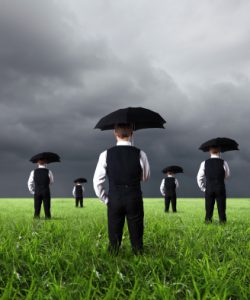National tragedies from natural disasters to shootings are hard for the collective national well-being. They bear down on millions of people creating a hybrid of emotions that affect everyone from rage to sadness. Collectively, an anxiety exists in America of where and when the next national tragedy will occur. Almost weekly, an unnecessary and devastating shooting occurs where innocent individuals die. This ultimately has an affect on Americans.

First, Americans are affected collectively. They are saddened by the death of innocent people and also enraged at injustice of these incidents. This leads many in collective national grief to expressing themselves politically and publicly. The nation seeks answers but also grieves. Everyone grieves differently and activism is a major venue for many Americans to voice their grief, anger and frustration.
Besides the collective grief and therapeutic methods to combat this national grief, many Americans also experience this grief on a personal level. New fears emerge within everyone. Whether at worship, school, or shopping, the fear of a masked gunman is always in the back of the mind of Americans. This anxiety associated with this national grief is something that all Americans must face. Some Americans will deal with this anxiety by closing themselves up, or others will be proactive and always be vigilant and alert. Other Americans will look to arm themselves to regain that loss sense of security that has been stolen.
Whether through activism for better gun control laws, or through utilizing one’s right to bear arms to defend oneself, the psychological reaction to national grief and tragedy will have profound effects on how Americans cope with these continuing losses.
Of course, the ultimate reality is those who experience these losses directly, whether a survivor of an attack, or a family member who loss a loved one in an attack. Survivors will face a multitude of issues associated with grief, ranging from PTSD to survivor guilt. The attack will be replayed in their minds constantly. What could I have done differently? Or I should have died not my friend! These thoughts will all become thoughts tormenting the survivor. Some survivors will also deal with secondary losses, such as an injury that will haunt them for the rest of their lives, or be tormented mentally with flashbacks from the traumatic event. The road to recovery for a survivor of a shooting is not an easy one indeed
As for family members, a myriad of grief thoughts will cross through their mind. Not only is the loss unexpected, but it is also traumatic and illogical. These family members will face years of torment and second guessing on “why”? This is not an easy fix for these family members either. They will undoubtedly undergo profound changes and look to cope with grief years after in different ways.
After the initial sting, depression and complications of such a horrible loss, family members may look to remember or try to create better laws to try to make some sense for the illogical and unexplainable loss of their loved one.

We already see this anger and coping towards social ills and bad laws by family members in the news, as many of them, as well as survivors, become public figures for gun control laws. This in many ways is the new role they have inherited and a way to make sense out of chaos and remember the lost of their loved one. Whether misdirected or a good idea, gun control laws will remain a central theme in these shootings. Whether it is better control of gun sales, or better laws against those who misuse guns, the public and political spotlight becomes for both sides a way to push an agenda. Sometimes, individuals who are victims of these crimes will use this as a way to heal, while unfortunately many others may be used by various lobbyists to further agendas.
Despite the national grief and agendas, those who suffer these crimes will have a hard and steep uphill battle in dealing with their grief. It will not be an easy journey but one that is necessary in healing and also understanding their new chapter in life. It is a chapter they will not want but a chapter they nonetheless will need to read. As a nation we need to read it with them and help them.
If you are interested in learning more about Grief Counseling Training or would like to become certified in Grief Counseling, then please review the program and see if it matches your academic and professional needs.
